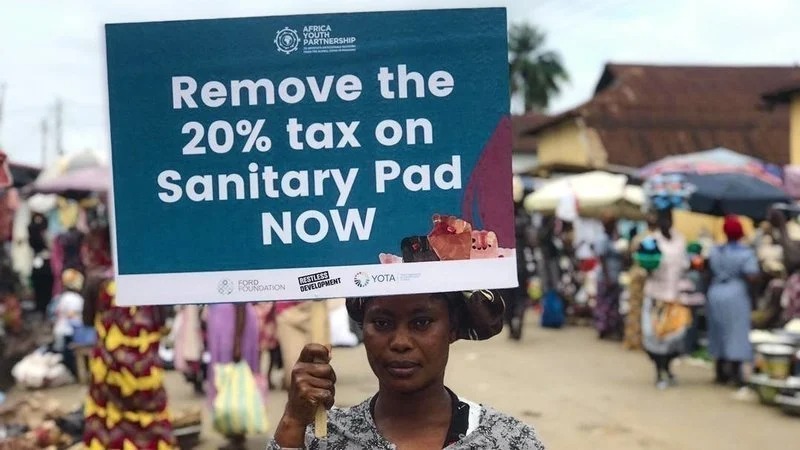Private Members Bill presented to remove taxes on menstrual hygiene products
The Bill particularly seeks to amend the VAT (Amendment) Act, 2022 (Act 1082)

The Member of Parliament for the Madina Constituency, Francis Sosu has presented a Private Members Bill to Parliament, seeking to remove the 15% Valued Added Tax (VAT) and reclassification of the 20% import tax on sanitary pads and tampons.
The Bill particularly seeks to amend the VAT (Amendment) Act, 2022 (Act 1082), Mr. Sosu said in the memo presented to the Clerk of Parliament on Thursday.
He further notes that the imposition of these taxes is not only unfair, but also “violates both national law (Article 17 of the 1992 Constitution) and various international laws and treaties such as Article 2 of the African Charter on Human and Peoples’ Rights, Articles 24(1) and 26 of the International Covenant on Civil and Political Rights (ICCPR), the Convention on Rights of Children, and the Convention on the Elimination of All forms of Discrimination against Women, among others.”
Menstrual hygiene products such as sanitary pads and tampons are classified under “Finished Goods” or final consumer goods according to the Ghana Revenue Authority (GRA). Due to this, they carry a 20% import duty.
And with the passing of the VAT (Amendment) Act, 2022 (Act 1082) in September last year, these products and similar articles further attracted an upfront payment of 12.5% VAT and a 2.5% NHIL rate.
But this has been shot down by activists and civic groups, who say these taxes which would eventually affect the final price of sanitary pads on the market, is leading to a phenomenon of period poverty, especially since the country is battling an economic crisis.
Recently Speaker of Parliament, Alban Bagbin criticized the government over it's failure to withdraw the taxes on sanitary pads in the mid-year budget review, and calling on them to rethink the decision.
“On the issue of sanitary pads, the government should rethink about it. Because the taxes are not only imported ones, even the locally produced ones are taxed. The businesses met me two days ago, [and told me that] even the raw materials are taxed. They were complaining about production, to the extent that some of them folded up. This is something that I take seriously," Mr. Bagbin said on the floor of Parliament on June 23, 2023.


